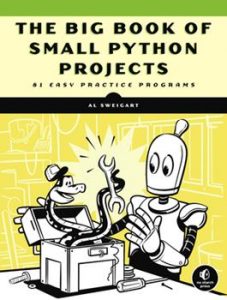The Inclusive Naming initiative is an effort to remove language from software which creates an unwelcoming community. Words like ‘slave’, for example, are used extensively in software, when other words are both more meaningful and less problematic.
When I discuss this effort, by far the most common response that I get from detractors is that it’s Orwellian – that it is NewSpeak – that it is erasing words and forbidding subversive thought.
In Orwell’s book 1984, NewSpeak is a state-approved modification to language that uses vague, euphemistic words, when the clearer, more accurate word is deemed bad.
This is quite literally the opposite of what we are trying to do with the INI and related conscious language efforts. Instead, we are trying to replace metaphors like ‘slave’ with words that accurately describe what is happening in the software, while at the same time removing the association with the horrifying history of actual slavery in the real world.
The ideal that we are somehow forbidding the use of the word ‘slave’, in this example, is equally untrue. The word slave has a meaning, and a historical context, and should be used to reflect that meaning and context. Using ‘slave’ to refer to a database replica, for example, not only has these overtones from *actual slavery*, it also doesn’t accurately describe what is happening in database replication, which is confusing.
Technical documentation should avoid idiomatic phrases, colloquialisms, and metaphor, whenever possible, and should always strive to choose the word or phrase that describes the function or feature in the most unambiguous way possible. Words and phrases such as slave, blacklist, insane, and so on, not only violate that rule, but do it in a way that is likely to make segments of the population feel unwelcome or “othered“, which is the antithesis of community building.

 A few days ago I ordered “
A few days ago I ordered “